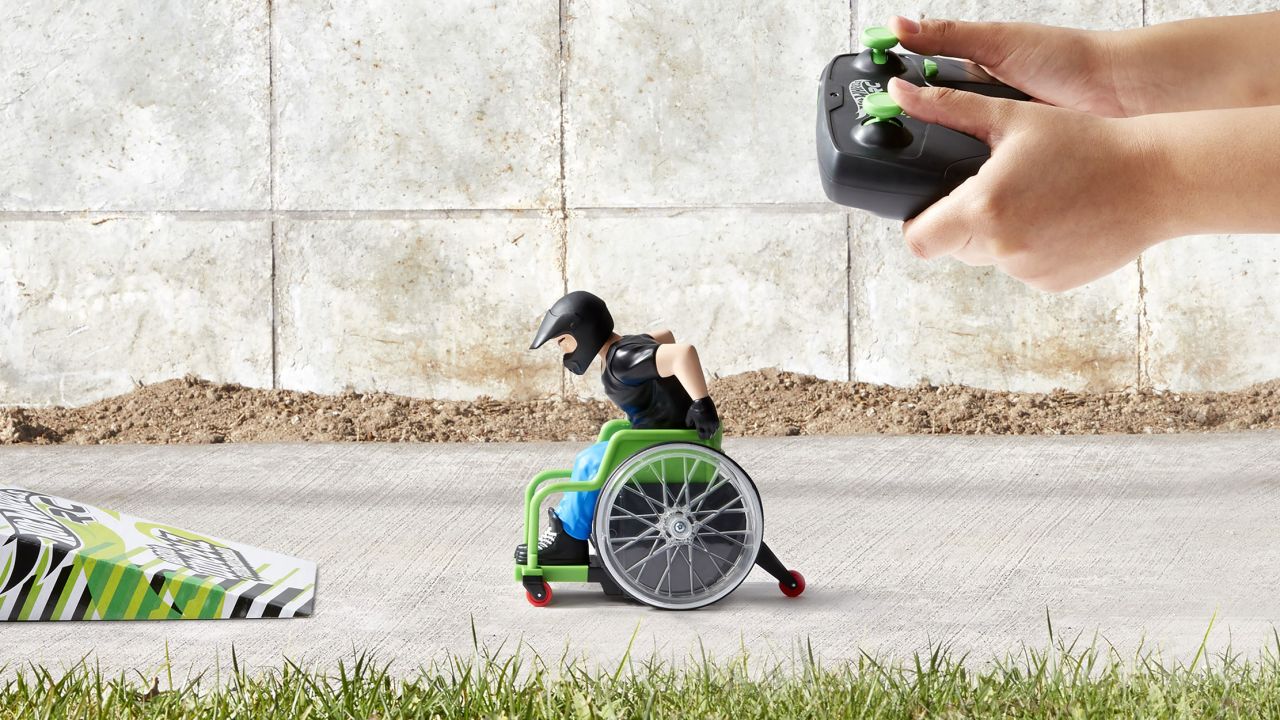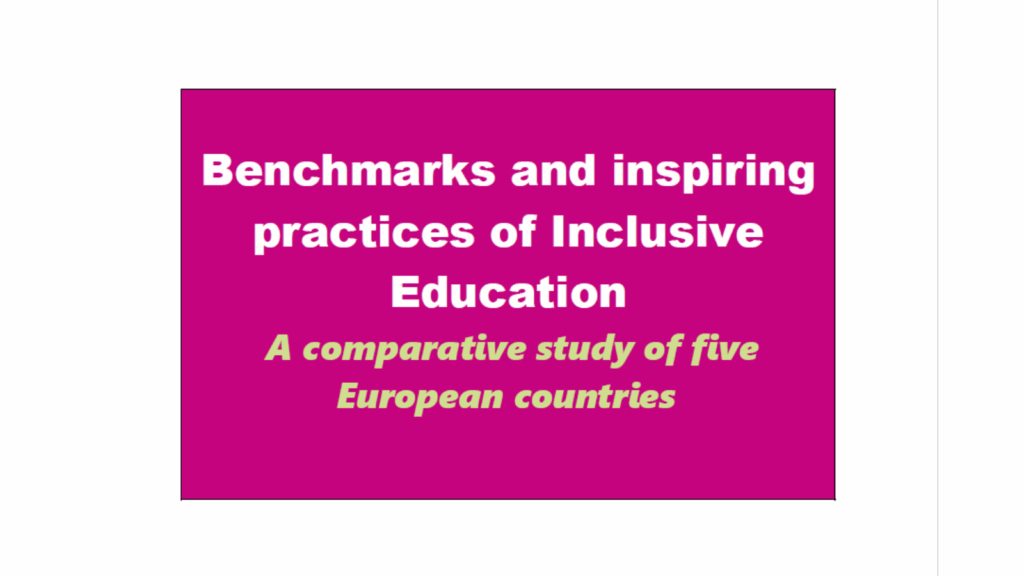As a purpose-driven company, our mission is to create innovative products and experiences that inspire, entertain, and develop children through play. As part of that, we want to make the faces of all children light up, not only with the joy of play, but with that spark of seeing themselves and others represented.
We are striving to live this mission each day through the inclusive toys and characters we create. Toys like the Hot Wheels remote-controlled wheelchair that honours US Paralympian and five-time Wheelchair Motocross World Champion Aaron “Wheelz” Fotheringham, as well as our Wheelz scale model of his iconic green chair.
Like many children, Aaron went down his first ramp at a local skate park when he was eight years old. But he wasn’t on a skateboard or scooter, he was in a wheelchair he’d just started to use permanently. Those inspirational early days at the skatepark when he could be creative spurred him on to become a wheelchair athlete – and we hope our collaboration will help to inspire and empower the next generation to explore the wonder of childhood and reach their full potential.
Representing children with disabilities
On 3 December, the United Nations (UN) marks the International Day of Persons with Disabilities, which serves to promote the rights and wellbeing, as well as raise awareness, of people living with a disability.
As explained in COFACE Families Europe’s report “From Words to Action: shedding light on the S.H.I.F.T. towards meaningful inclusion in Europe”, Mattel is proud to support the UN Convention on the Rights of Persons with Disabilities: Article 5 “Equality and non-discrimination”; Article 7 “Children with disabilities”; Article 8 “Awareness-raising”; and Article 9 “Accessibility”.
Around one in 10 children and young people worldwide have a disability, according to the United Nations Children’s Fund (UNICEF). Children with disabilities are 51% more likely to feel unhappy and 41% more likely to feel discriminated against than children without disabilities. We believe that representing all children through inclusive toys is hugely powerful for two reasons: it empowers children with disabilities, and it educates children without disabilities, so they are more respectful and don’t discriminate against others. We call that “purposeful play”. Disability has rightly moved from being a medical issue to a societal issue, with the focus being on breaking down the physical and cultural barriers people with disabilities face. For toy companies, it means the need for inclusive design is paramount and something our incredible teams at Mattel strive to do every day as part of our roles.
Inclusive design for purposeful play
We make toys for and, most importantly, with children with disabilities and their families, working alongside focus groups and responding to letters from consumers. Our toys aim to build connections through empathy, are customisable and have comfort built in. Often what makes them more user-friendly for someone with a disability also makes them more comfortable for everyone to play with. This year, we collaborated with Rose Ayling-Ellis, a deaf British actor, on a Barbie with a behind-the-ear hearing aid. As a child, Rose used to draw hearing aids on her dolls to make them look more like her, and she says it’s “It’s so important for children to be able to see themselves represented in the toys they play with… so I am thrilled that Mattel is releasing more dolls that encourage kids to celebrate and embrace their differences!”
The Barbie Fashionistas line is where the Barbie brand delivers the most diversity and inclusion, and since its inception, 175+ looks have been introduced, offering children a variety of skin tones, eye colours, hair colours and textures, body types, disabilities, and fashions to choose from, coming in six different body shapes and 22 skin tones, but also in a wheelchair, with a prosthetic leg, with vitiligo and without hair. Through Barbie, we’re also able to pay tribute to disability role models like the Braille pioneer Helen Keller in our Inspiring Women series, and Turkish Paralympian athlete Sümeyye Boyaci.
We need to talk about Bruno
The need to raise awareness of children with disabilities goes beyond toys, to all the interactions children have with the characters we look after. Our diversity and inclusion work also enables us to bring representative characters to life on screen, which can have a huge impact. In September, we introduced Bruno the Brake Car to the Thomas & Friends: All Engines Go series, in collaboration with autistic writers and organisations. Bruno is also voiced by British nine-year-old Elliott Garcia, who has the developmental disability autism. Elliott describes Bruno as “funny, smart, a very relaxed character”. Bruno can become really overwhelmed, but Elliott says he uses comedy to get past situations. “He loves schedules and timetables and when everything goes to plan.” In the UK alone, there are 160,000 school-age autistic children, according to Tom Purser, Head of Guidance, Volunteering & Campaigns at the National Autistic Society, which helped with the casting of Elliott.
“It is important that everyone sees autistic characters on our screens because [autistic children want to see their stories told], but it is also important that non-autistic children get insight and understanding into what it can be like to be autistic.”
Besides supporting the UN Convention on the Rights of Persons with Disabilities, our work also supports the 2021-30 EU Disability Rights Strategy, specifically, the objectives “Accessibility – enabler of rights, autonomy and equality” and “Promoting the rights of persons with disabilities globally”.
At Mattel, we strive to live our purpose for every child and disability, to empower the next generation to explore the wonder of childhood and reach their full potential.
About the author: Sanjay Luthra is the Executive Vice President for EMEA at Mattel and Chairman of Toy Industries of Europe (TIE). Formerly Managing Director for five years, his challenger mindset and focus on digital strategy led EMEA to become Mattel’s fastest-growing region in 2021. His vast experience in the toy sector spans two decades and several continents, from his native India to the UK. In 2019, Sanjay was elected as Chair of the TIE Board and he has been at the forefront of adapting the toy industry to meet the challenges of a changing retail market throughout the uncertainties of Brexit and COVID-19. Sanjay is an advocate for the power of toys to educate children, and of the toy sector to promote social change, such as encouraging inclusion and diversity.
**DISCLAIMER: All opinions in this article reflect the views of the author, not of COFACE Families Europe**





